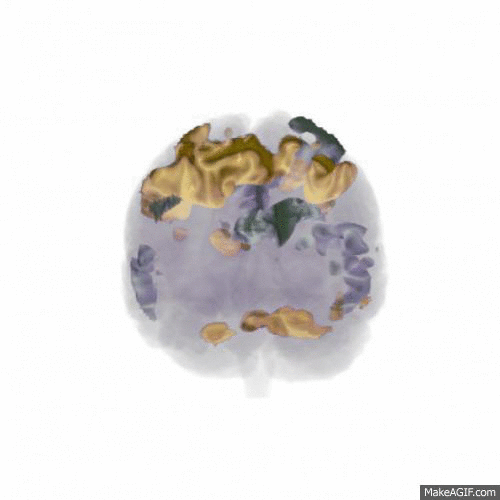In addition to examining WM mechanisms, we also wanted to study how the WM functions in different auditory noise conditions. Therefore the majority of the participants performed the task while different noise conditions were played in the background. However, this was not part of our initial publication, and both Patrik and I got involved in other projects, preventing us from publishing on this aspect of the study until this year.
We found that the larger data set (from 18 participants) confirmed the main finding of the pilot study: that updating WM content activates areas mainly in dorsolateral prefrontal cortex, the posterior medial frontal cortex and the parietal lobes (shown in red in the animation below, t-values 7-16), while rejecting the input and not updating WM content activates the anterior medial frontal cortex (shown in blue). Comparing this to the similar contrast in our previous publication shows a very similar pattern, indicating a replication of the finding.
In order to address our second research question of how noise affects WM function, all participants performed the study in three different conditions: In silence, in aircraft noise and in speech noise. We wanted to see whether updating WM content in speech noise activated different cortical areas than updating in aircraft noise. As shown in the animation below (t-values 4-9), the prefrontal cortex is involved to a greater extent when updating in speech noise (shown in gold) than when updating in aircraft noise (shown in silver). This could indicate that speech noise is more intrusive on e.g. phonological loop processes, and requires deliberate processing to counteract.
The publication is currently in press at Scandinavian Journal of Psychology. You can find a pdf of the pre-print version of the paper here.
The publication is currently in press at Scandinavian Journal of
Psychology. You can find a pdf of the pre-print version of the paper here.

